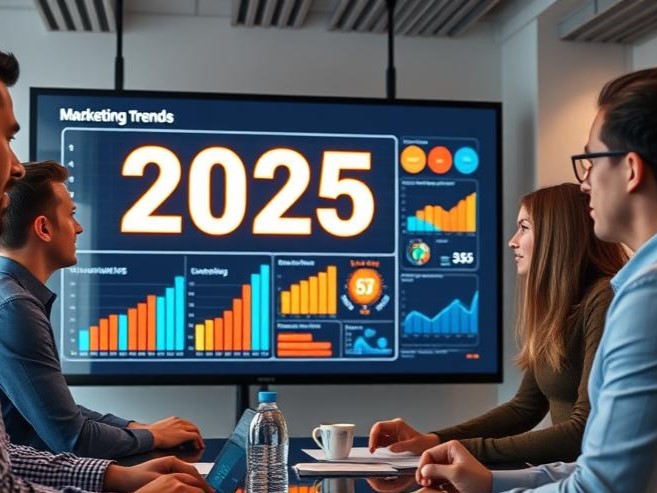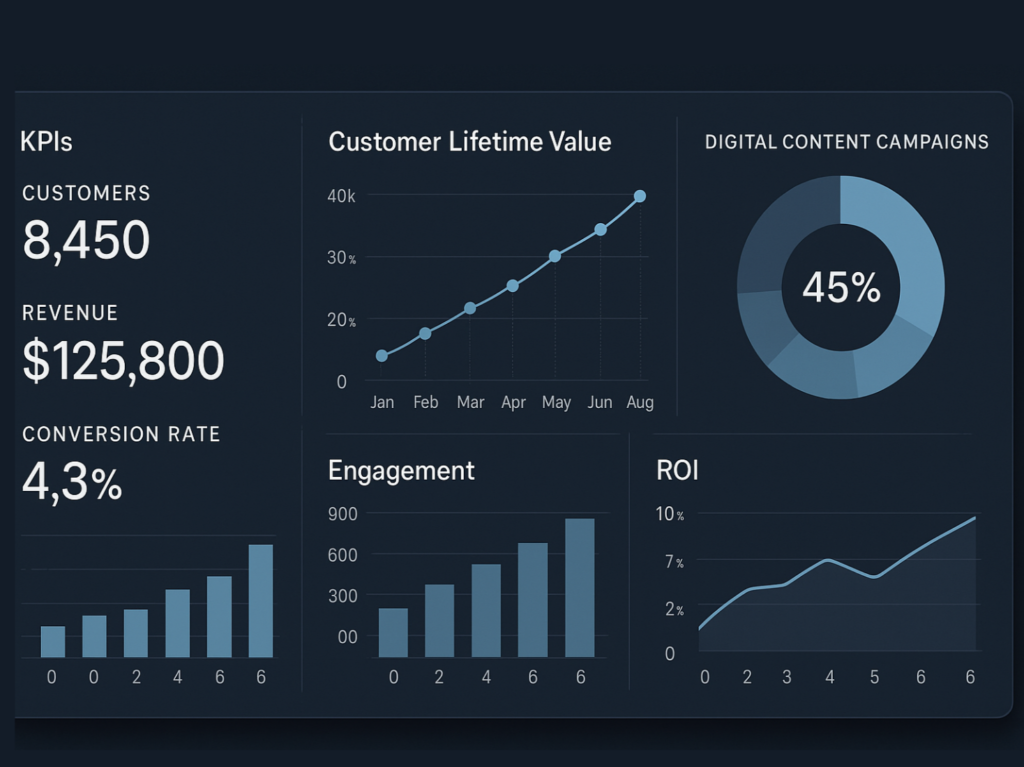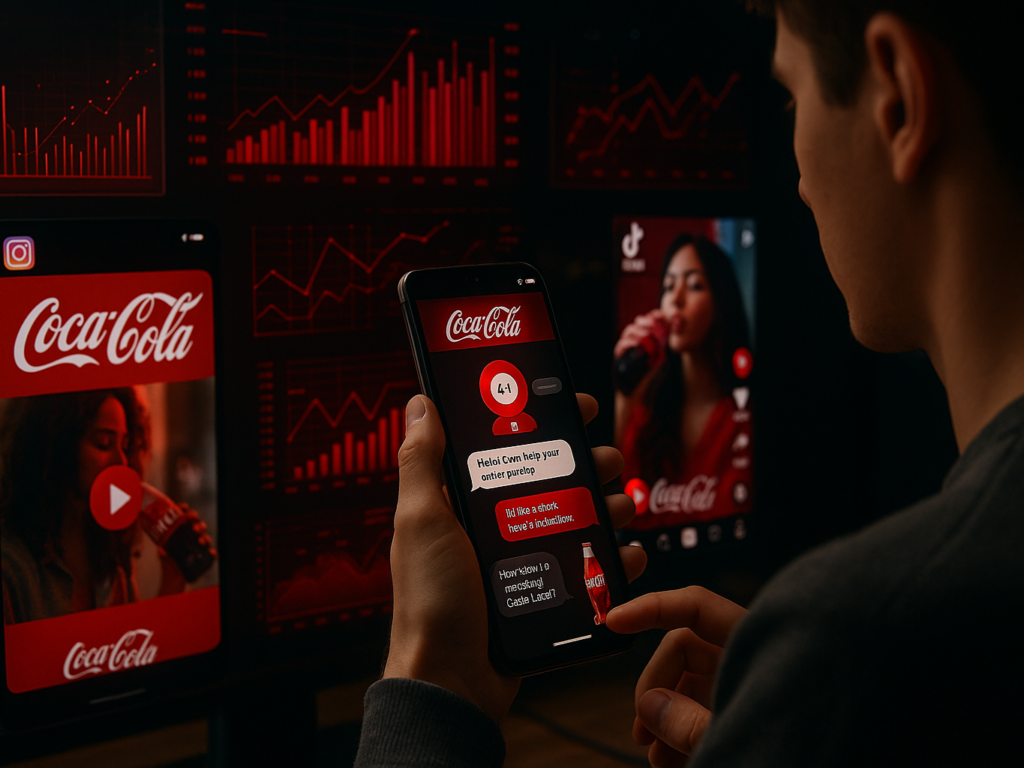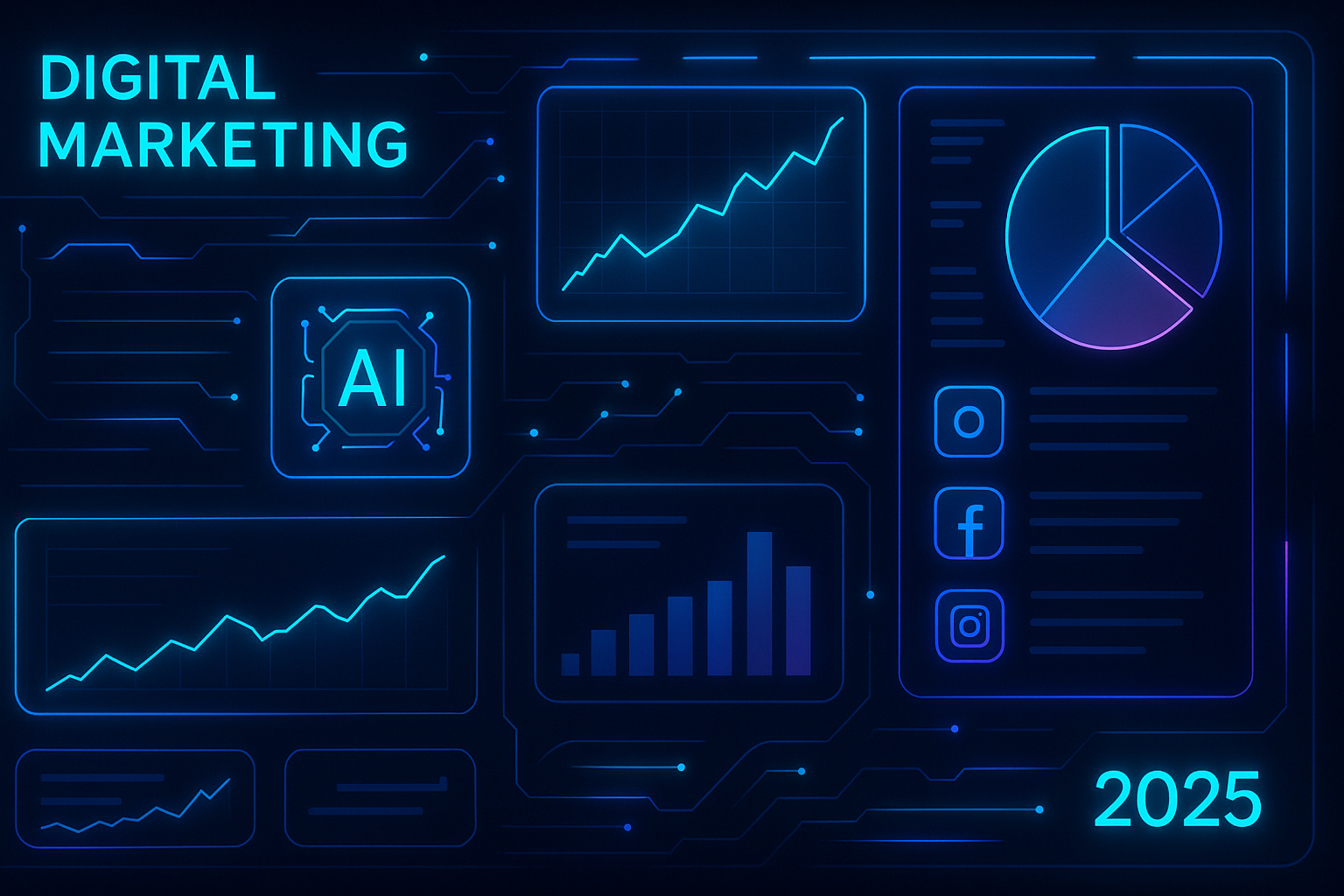The digital world is constantly changing. Businesses need to keep up with trends to stay competitive. Content marketing is a strong tool for businesses, big and small. But as we move toward 2025, things are changing fast. To succeed in the future, companies need to future-proof their content marketing. They must attract attention and build strong relationships with their audience.
So, how will content marketing evolve in 2025? What can businesses do now to develop effective and sustainable strategies? Let’s dive into the trends, data, and strategies you must implement to stay relevant.
Why Content Marketing in 2025 Matters More Than Ever

The global content marketing will reach $500 billion by 2025 (Source: MarketsandMarkets). Content is crucial for businesses that want to connect with their audiences. Companies that don’t invest in content may fall behind in a challenging market.
Here’s why content marketing will be more critical than ever:
1. Consumer expectations have skyrocketed
88% of consumers expect brands to create entertaining and educational content (Source: Content Marketing Institute).
2. Search engines are evolving
Google’s algorithms are becoming more sophisticated, making ranking low-quality content even harder. By 2025, content creators must rely on more than keyword stuffing or simple SEO tricks to succeed.
3. The rise of AI-driven content
90% of content will be AI-generated by 2025 (Source: Gartner). This means businesses must learn how to integrate artificial intelligence to streamline content creation without losing its personal touch.
With these changes in mind, adapting and future-proofing your content marketing strategy is essential.
Key Trends Shaping Content Marketing in 2025
To stay ahead of the competition in 2025, here are the key trends that will define the content marketing landscape:
1. AI-Powered Content Creation
- AI tools are already transforming content creation. By 2025, AI is expected to produce 90% of content across digital platforms (Source: Gartner). Content creators use AI to write and generate video scripts, optimize SEO, and personalize user experiences.
- Jasper (formerly Jarvis), an AI content generator, has seen a 300% growth in users over the last year alone. Businesses can create content faster and more efficiently using AI-powered tools, helping them scale without sacrificing quality.
2. Video Marketing Dominates
- Video is expected to account for 80% of all internet traffic by 2025 (Source: Cisco). From short-form videos on TikTok to long-form educational videos on YouTube, businesses must invest in content to stay relevant.
- Nike has successfully used video to build its brand by creating authentic, inspiring short-form content for social platforms, combined with long-form videos that engage customers on YouTube. These videos help Nike connect emotionally with its audience while driving sales.
- The key to success in video marketing is versatility. Brands should aim to produce engaging content across various video formats to appeal to different audience segments.
3. Voice Search and Audio Content Surge
- By 2025, 55% of all searches will be voice-based (Source: ComScore). Voice search transforms how people interact with content, and brands must optimize their content for voice search queries.
- Podcasts are booming: With an estimated 160 million podcast listeners by 2025 (Source: Statista), businesses are incorporating audio content into their strategy. Podcasting offers an excellent opportunity for businesses to connect with their audience while providing valuable insights, discussions, and stories.
- Companies like Spotify and Apple Podcasts have already capitalized on this trend, with major brands investing heavily in producing branded podcasts that resonate with listeners.
4. Data-Driven Content Marketing
- Data is king. Content analytics will be more critical than ever, with businesses using tools like Google Analytics and HubSpot to assess their real-time content performance. By 2025, 80% of content marketers will rely heavily on data and analytics to drive their content creation process (Source: Content Marketing Institute).
- Content strategies must evolve based on this data to deliver real value to users. Personalized content that addresses the specific needs and pain points of individual customers will be the most successful.
The Evolving Landscape of Content Consumption in 2025
1. Shift to Short-Form and Snackable Content
Platforms like TikTok and Instagram Reels dominate, with consumers preferring quick, digestible content.
2. Mobile-First Consumption
With mobile traffic expected to make up 73% of global internet traffic by 2025, optimizing content for mobile devices is crucial.
3. Voice Search and Smart Speakers
Voice-activated devices like Amazon Alexa and Google Assistant will continue to influence how people consume content, with voice search predicted to make up 55% of all searches by 2025.
4. Audio and Podcast Growth: Podcasts
will become even more popular, with an expected 160 million listeners by 2025, offering new opportunities for brands to engage.
Leveraging AI and Automation for Content Success in 2025
1. AI-Powered Content Creation
AI tools like Jasper and Writesonic will help businesses produce content faster while maintaining quality, aiding in 90% of content production by 2025.
2. Personalized Content Experiences
AI-driven algorithms will enable personalized experiences at scale, from website content to email marketing campaigns, leading to higher conversion rates.
3. Automating Repetitive Tasks
Content management systems (CMS) and automation tools will handle repetitive tasks like social media scheduling and email campaigns, saving time and resources.
4. Predictive Analytics for Content Planning
AI will help brands predict trends and understand what types of content will resonate with their audience, allowing for proactive content planning.
Measuring Content ROI and Demonstrating Value in 2025

1. Advanced Analytics Tools
Tools like Google Analytics and HubSpot can be used to track key performance indicators (KPIs), such as website traffic, engagement, and conversion rates.
2. Content Attribution Models
Implement advanced attribution models (e.g., multi-touch attribution) to understand better which content is driving conversions.
3. Customer Lifetime Value (CLV)
Measure the long-term impact of content by assessing the value a customer brings over their entire journey, not just short-term clicks or purchases.
4. Engagement Metrics Beyond Views
Rather than just page views, focus on deeper engagement metrics, such as time spent on page, shares, comments, and interactions.
5. Content ROI Tools
Tools like BuzzSumo and Content Square measure engagement and ROI by analyzing user behavior and the content’s effectiveness.
How to Future-Proof Your Content Marketing Strategy in 2025
1. Embrace AI and Automation
- Use AI tools like HubSpot and Marketo for personalized content based on real-time data.
- Automate scheduling, posting, and data analysis to save time and focus on strategy.
2. Invest in Video and Visual Content
- Prioritize video creation for platforms like TikTok, Instagram, and YouTube.
- Use live streaming on Instagram Live or Facebook Live to connect with your audience in real-time.
3. Optimize for Voice Search and Audio Content
- Optimize content for voice search with natural language and long-tail keywords.
- Launch a branded podcast to build deeper brand connections.
4. Incorporate Interactive Content
- Create engaging quizzes, polls, and 360-degree views for higher conversions.
- Experiment with AR/VR to create immersive, interactive content.
5. Stay Data-Driven
- Use analytics tools to track your content’s performance and optimize accordingly.
- Leverage AI insights to fine-tune your content for better engagement.
By implementing these strategies, you’ll be well-equipped for success in 2025 and beyond.
Coca-Cola’s Content Strategy in 2025

Let’s take a look at how Coca-Cola is adjusting its content marketing strategy for the future. The brand has been integrating AI and personalization into its campaigns by analyzing user behavior data to deliver customized experiences. In 2025, Coca-Cola will likely use chatbots to interact with customers in real-time, providing personalized product recommendations based on preferences. They also plan to ramp up their video content across social media platforms like Instagram and TikTok, where their audience is highly active.
Final Thoughts: Adapt and Thrive in 2025
Content marketing in 2025 will be more dynamic, personalized, and driven by data. To stay ahead, businesses need to embrace AI, invest in video and voice content, incorporate immersive experiences, and most importantly, stay data-driven. By creating engaging, personalized content, you’ll future-proof your strategy and build stronger, more meaningful relationships with your audience.
Now is the time to adapt to these changes because those who fail to evolve will be left behind.





